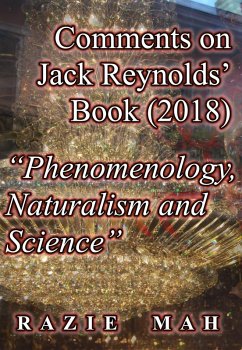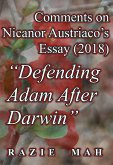Prof. Jack Reynolds, faculty in Arts and Education at Deakin University, considers the question of an accommodation among phenomenology, naturalism and science. He calls his proposal "hybrid and heretical", without acknowledging the irony of the terms. Is there a battle between the phenomenologist and the scientist? What happens when there are two types of science: content-level hands-on science and situation-level visionary science? Can phenomenology hybridize with hands-on science and be heretical to visionary science? What is the nature of such hybridization and heresy? These comments use the triadic structure of judgment and the category-based nested form. These comments rely on a prior commentary, Comments on Jacques Maritain's Book (1935) "Natural Philosophy". They are already set into motion through three prior commentaries on Phenomenology: A Reverie on Mark Spencer's Essay (2021) "The Many Phenomenological Reductions", Comments on Joseph Trabbic's Essay (2021) "Jean-Luc Marion and ... First Philosophy", and Comments on Richard Colledge's Essay (2021) "Thomism and Contemporary Phenomenological Realism". Ah, I guess that means that this is the fourth commentary in a series on Phenomenology. The first three commentaries examine articles by Thomists, who wonder why engagements with phenomenologists have historically failed. None mention science. This is understandable, since phenomenology seems to have a life of its own, independent of science. It does not. It belongs, along with modern scientific naturalism, in the Laboratory. Yet, the relation between phenomenology and natural science remains clouded. Jack Reynolds attempts to construct a map and to propose some sort of accommodation between situation-level phenomenology and content-level hands-on science. In response, situation-level visionary science is not pleased. The normal context of each situation-level nested form excludes the other. Amazingly, Reynold's themes of heresy and hybridization are on target. In their relational dynamics, these themes transform into disruption and innovation.
Dieser Download kann aus rechtlichen Gründen nur mit Rechnungsadresse in A, B, CY, CZ, D, DK, EW, E, FIN, F, GR, H, IRL, I, LT, L, LR, M, NL, PL, P, R, S, SLO, SK ausgeliefert werden.









